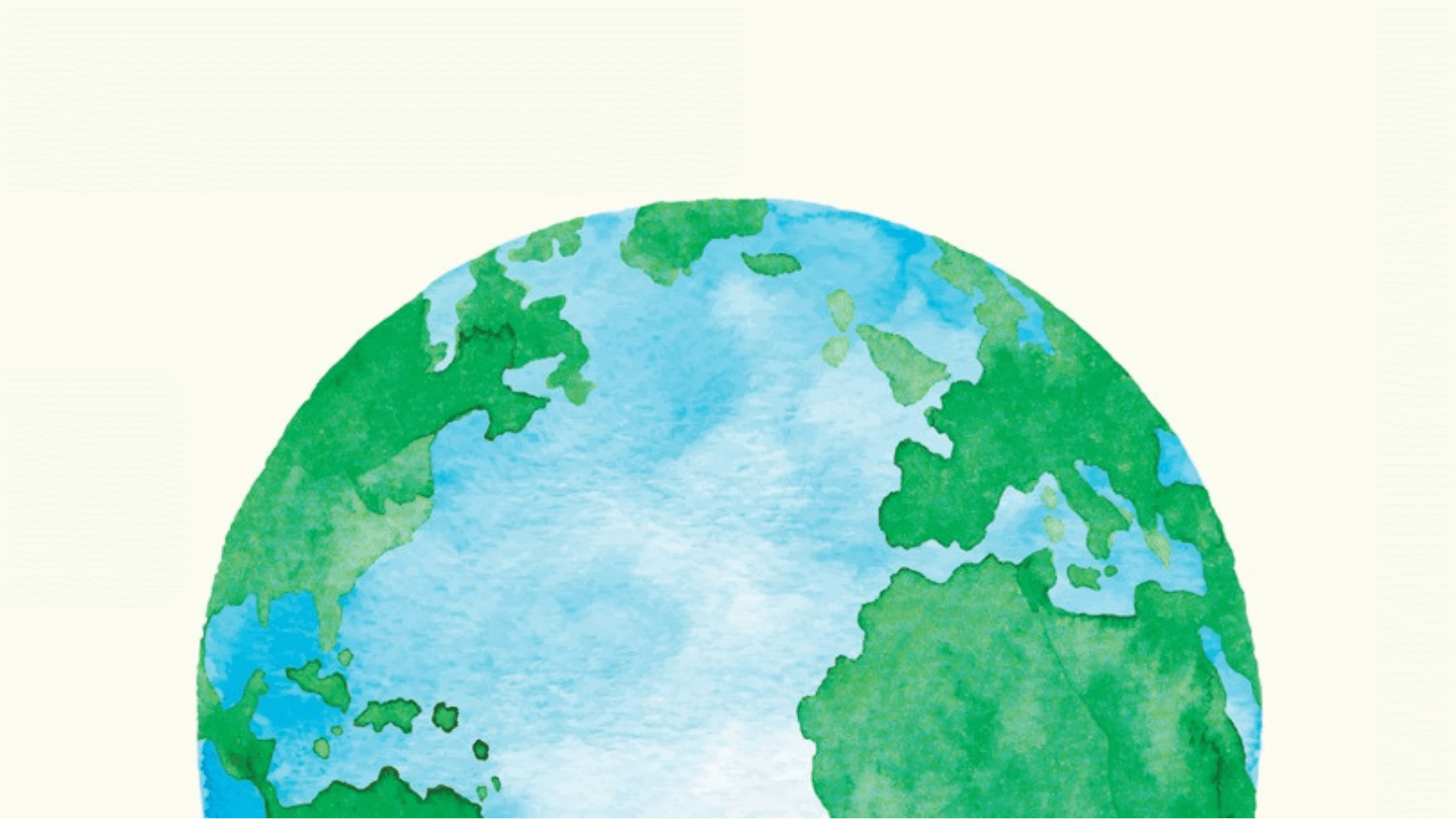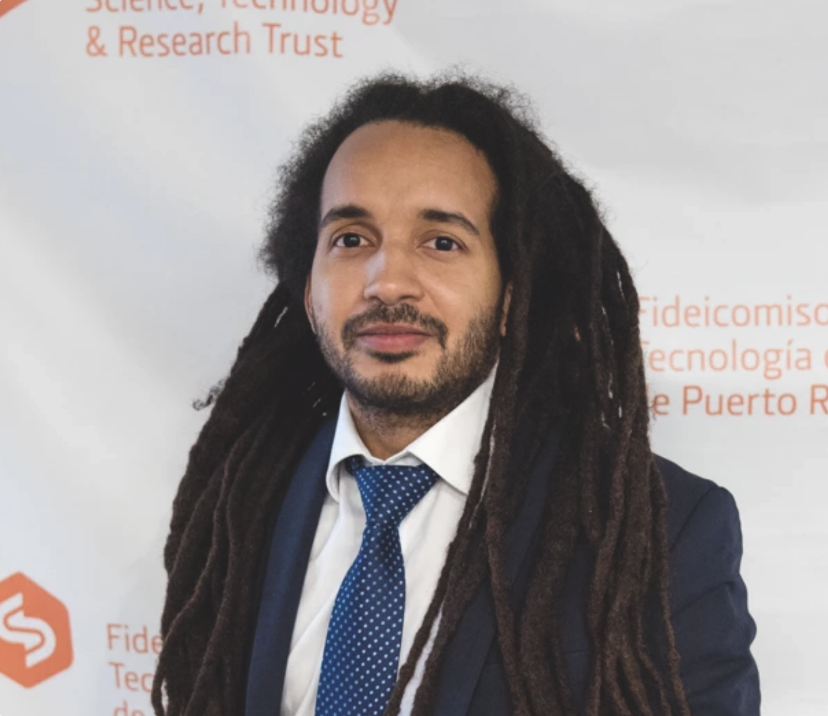The following is an excerpt from Climate Resilience by Kylie Flanagan, published by North Atlantic Books, copyright © 2023 by Kylie Flanagan. Reprinted by permission of North Atlantic Books.
About Amee Raval
Amee Raval is laying the foundation for more holistic climate resilience and adaptation work in so-called California. After reading some of Amee’s opinion pieces and attending webinars spotlighting her impactful work, I was struck by her deeply human, nuanced approach to policy and research. With a scientific background in the public health space, experience as a social needs advocate, and lived expertise as the daughter of immigrants, Amee recognizes the value of both quantitative data and storytelling, science-driven and soul-driven strategy, state policy and grassroots organizing. In everything that she does, Amee invites complexity, embraces the contradictions inherent to complex truths, and creates spaciousness for “both/and” thinking.
As the research and policy director of East Bay–based nonprofit Asian Pacific Environmental Network (APEN), Amee is focused on building people power, uplifting the wisdom of frontline and fenceline communities, and keeping her East Bay and South Asian diaspora communities safe through the climate crisis and interrelated crises. She was also recently appointed to California’s Environmental Justice Advisory Committee, which advises the California Air Resources Board on its Climate Change Scoping Plan updates. Amee spends her time community organizing, conducting and communicating cutting-edge research, helping inform and pass state policies that challenge the extractive economy and transform the energy system, and collaborating with others to develop regenerative economy solutions.
On the environmental injustices that inspire and fuel her work
My parents worked in the hospitality industry as I was growing up, saving up toward owning their own motel. It’s deep, grueling, physical labor. In addition to arduous physical demands, the housekeeping aspect involves consistent exposure to toxic cleaning products and chemicals. It has meant that my parents have experienced a range of chronic health impacts. To share a deeply personal story, my mom had two miscarriages before I was born. She was handling cleaning products late into her pregnancies, scrubbing the hotel room bathtubs with bleach. Looking back, she says, “I didn’t know any better.” I hold that in my heart.
My parents’ stories opened my eyes to the fact that your daily workplace can have a significant impact on health and well-being. My parents immigrated from India thirty years ago, which inspired my early work as a climate advocate confronting the occupational health impacts of extreme heat in our hometown. Parts of South Asia are expected to become uninhabitable as global temperatures rise and those localized heat impacts become unbearable.
My personal experiences, growing up as a child of immigrants and connecting to my homeland, have culminated in the work that I currently do with the Asian Pacific Environmental Network, advocating for Asian American immigrant and refugee communities here in the East Bay. My parents sacrificed so much to give my brother and me opportunities and I feel like I’m carrying on their legacy through my advocacy work. I carry with me all that they fought for to come here and fought against once they were here. I work for the hope and the vision that families like mine don’t have to sacrifice for their health and their well-being.
In Richmond and Oakland’s Chinatown, there are historic, place-based environmental and health burdens that have already taken their toll. In Richmond our community members are living on the fenceline of the Chevron oil refinery. In Oakland’s Chinatown our members describe the neighborhood as a wok of pollution. Surrounded by three freeways and a shipping port, pollution ends up sitting, stagnant and heavy, in their neighborhoods. Given the magnitude of trucks traversing those freeways, they’re impacted by diesel pollution in particular. As a result, these communities experience higher asthma rates.
These existing impacts are now being compounded by climate disasters. Our refugee and immigrant communities are facing both the historic impacts of climate pollution as well as worsening climate impacts across the Bay Area, such as power shutoffs, fires, toxic smoke, and heat waves.
On mapping community climate resilience
One of the areas where APEN is currently focusing is this concept of resilience mapping. To better understand which communities are most impacted by climate change, we know that climate science alone isn’t enough. It doesn’t tell us the full story of who’s disproportionately impacted. For instance, when considering who will be most impacted by extreme heat days, it’s not enough to map local temperatures; we must also consider how heat overlays with socioeconomic and neighborhood conditions. Those are the elements that determine whether you can afford air-conditioning, if you have easy access to cooling, whether you’re surrounded by green space or asphalt, if you have vehicle or transit access, and on and on. Those are the factors that make or break whether a community can cope and respond. It’s one thing for it to be hot outside, but it’s another when you live in an older building and don’t have ceiling fans or air-conditioning and it’s not well weatherized. It’s another thing when you open the windows to cool off and it’s really polluted outside because the Chevron refinery is flaring.
More holistic methods of resilience mapping are critical because they deepen our understanding of the cumulative impacts of climate change and socioeconomic vulnerability. It’s an approach that’s largely understudied, but it’s really important. It’s one way that we can start to depict, legitimize, and visibilize those cumulative impacts.
On the need for more resilience hubs and proper valuation of lived expertise
The Asian Pacific Environmental Network is also currently advocating for more resilience hubs. Resilience hubs are anchor institutions that we’re familiar with and provide critical services to neighbors every day: schools, libraries, youth centers, parks, recreation sites, and places of worship. In the past few months, as we’ve lived through intersecting crises, we’ve seen schools provide food to families and we’ve watched libraries become cooling centers for unhoused folks during heat waves or to offer clean-air respite during the fires. So while this term is new, resilience hubs aren’t a new concept. We’ve been investing in community and public institutions. However, at this confluence of intersecting crises, these spaces are more important than ever.
Successful resilience hubs require an empowered care workforce. When we talk about our care economy, we’re talking about child rearing, we’re talking about our social workers, our educators, our counselors, home care workers, healthcare workers. Our care economy is oftentimes invisible, underpaid, and undervalued. And it’s responsible for keeping everything going. Our care workers are really meeting the economic and social needs of our communities. Amid the coronavirus pandemic, it’s become incredibly apparent just how critical and undervalued our care workers are to keep society functioning. We’re advocating for a care workforce that is well trained, well paid, and empowered to act during crises.
To respond effectively to this moment, as we simultaneously confront economic fallout from a pandemic, an ongoing racial justice crisis, and a climate crisis, we need to double down on our investment in public institutions and community-serving facilities, and we need to uplift the deep expertise and storytelling of our community members who have been most impacted by these crises. Traditionally most of the decisions that impact our communities are made by affluent white folks, and particularly by affluent white men. They hold a lot of power in our society and in the mainstream environmental movement. We’re arguing that it’s working-class communities of color, who are living closest to the problems we’re solving for, who are the real experts on issues like economic inequality, public health disparities, and climate change. We can shift power when we appropriately value lived experience and knowledge as expertise.



